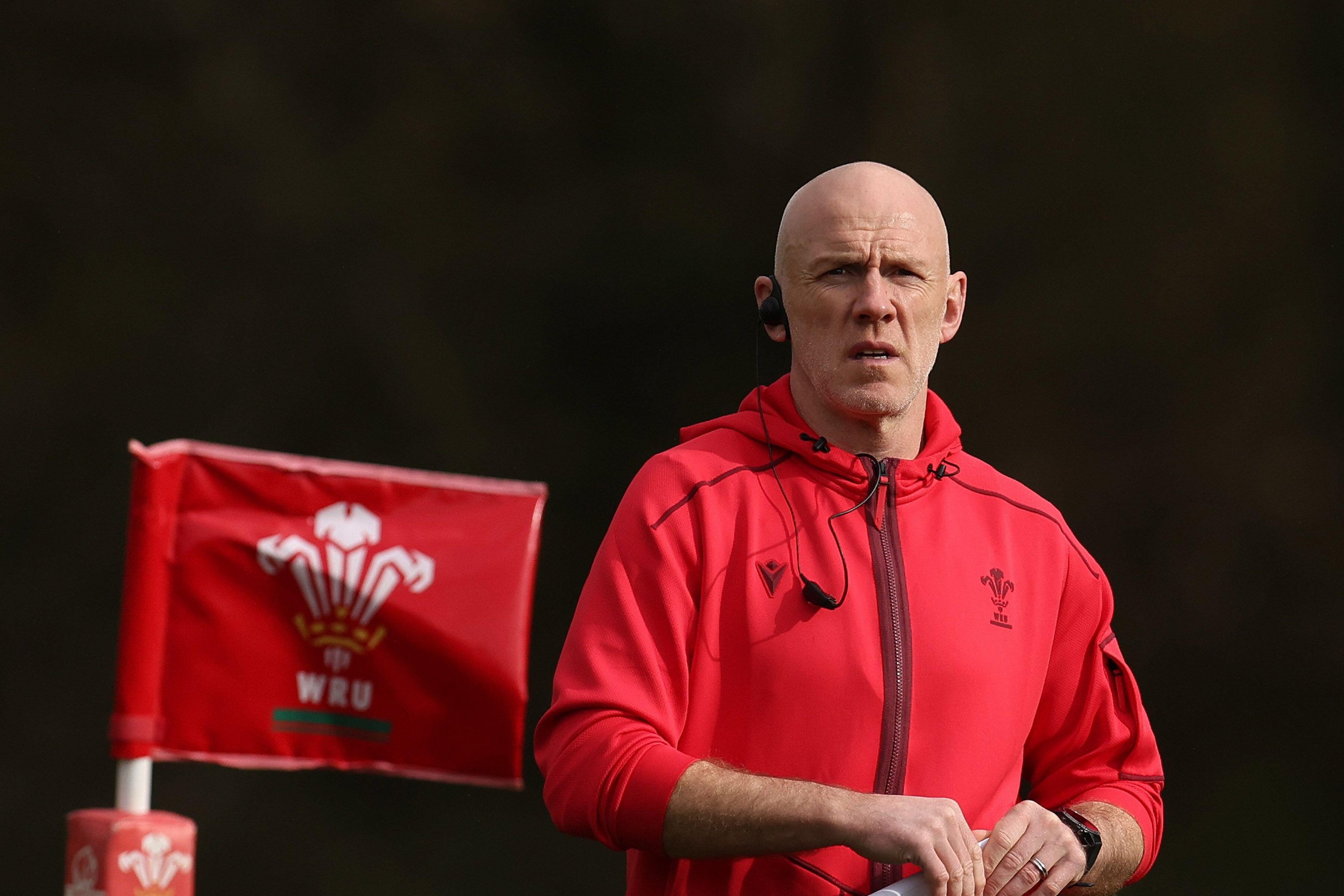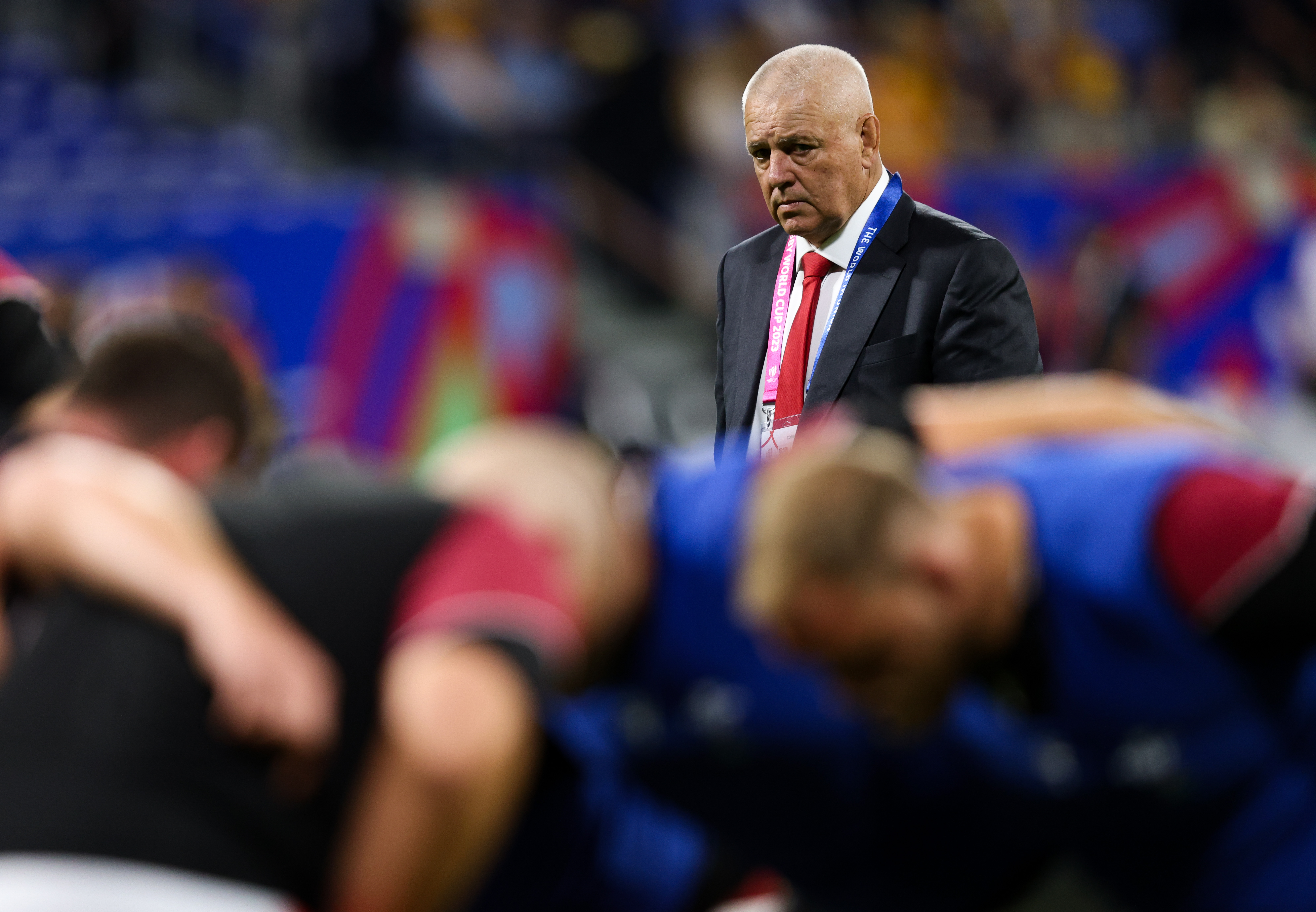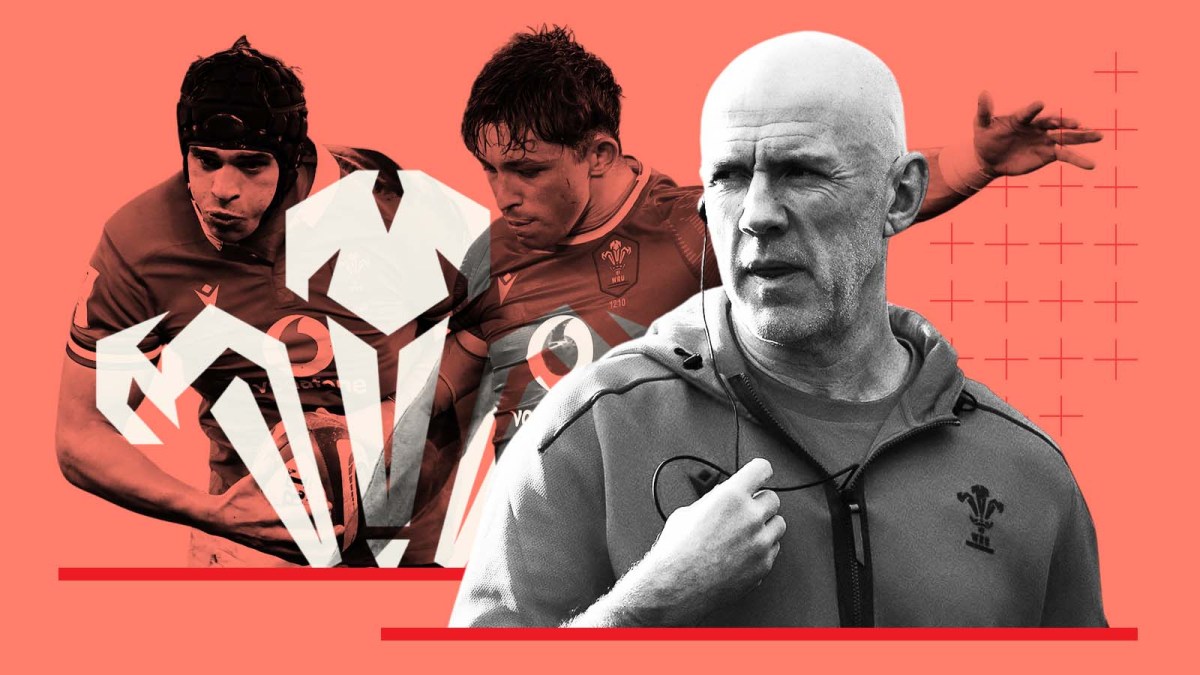Towards the end of George North’s recently released autobiography there is a telling paragraph about Wayne Pivac, whose short tenure as Wales head coach was sandwiched between Warren Gatland’s two stints.
“Wayne liked to say yes,” North wrote. “One of the senior players would suggest a change. He’d agree. Another player would put forward an alternative point of view — which is what you want from your experienced big dogs, the ones who’ve been there and done it. Wayne would agree with them too. It wasn’t always easy to figure out what he really wanted from the collective and the individuals within it.”
It confirmed the impression garnered all too easily from the outside: that there was confusion in the camp, that Pivac had been engaged to bring a more adventurous antidote to Gatland’s famed “Warrenball” but had soon realised that international rugby did not offer the same space and time that domestic rugby affords, and therefore had changed tack.

Tandy takes charge this autumn amid off-field uncertainty after the WRU decided to scrap one of the domestic teams
ANDREW ORCHARD/ALAMY
Wales lacked the identity that had been so evident during Gatland’s first spell. Whether you liked it or not, you knew exactly what Wales would bring to every single Test match then: “Gainline presence, physicality, ball-carrying ability, defensive mindset and line speed, the importance of winning the kicking battle and an unrelenting work rate,” as once outlined by his former captain, Sam Warburton, in The Times.
The problem when Gatland returned was that he did not have the players to play that way. Most of the big boys had gone — certainly so after the 2023 World Cup, in which Wales actually did quite decently — and they were constantly outmuscled. Gatland became almost as confused as Pivac had been.
Now Steve Tandy, bounding into the head coach job amid terrible off-field uncertainty as the Welsh Rugby Union decided to announce scrapping a team days before the players met up, is determined that will not happen again and made that very clear when announcing his squad for the autumn internationals.
Asked what he wanted by the end of the four-match campaign against Argentina, Japan, New Zealand and South Africa (for the final match he will be without the 12 members of the squad who are based outside Wales), Tandy said: “I think you want an absolute level of performance and to be able to look back on the four games and know what we are, with a clear identity of how we want to play. I’d love to say ‘four wins’, but that’s not reality. I’d love to be sitting here with people after the autumn, with them all knowing how Wales want to play.”

Tandy wants a team who are tough to beat and reflect Welsh national identity
BEN BIRCHALL/PA
Later, I pressed him further on that identity. It is clearly important to him and his coaches. “We’ve been talking about it a lot,” Tandy said. “I think, ultimately, we want to be a tough team, we want to be tough to beat — that’s probably our identity as Welsh people that goes through generations — but also we have to look at how we play the game. You look at the No10s we have picked, you look at some of the backfield boys, I think we have to be brave in how we want to play.”
An amalgam of resilience and resourcefulness, then; perhaps, to aim high, a mix of the grit Gatland brought with the dazzling panache for which Welsh players of yore were famed. And there is little doubt that Tandy, once an uncompromising flanker at club level and a successful defence coach with Scotland and the British & Irish Lions, will bring a hard edge, as will his new defence coach, Dan Lydiate. Danny Wilson, the forwards coach, will bring expert technical detail too. And it is also fair to say that Tandy’s attack coach, Matt Sherratt, will bring clarity and invention to his role, as he did as interim head coach last season and during the summer tour of Japan.
But the follow-up question was obvious: do Wales possess the players for it and, in particular, is there the power and physicality to be able to weave the intricate patterns Sherratt desires? Tandy had earlier commented that Wales as a rugby nation are “exceptional” at focusing on what players cannot do.
“We always look at what we haven’t got, instead of looking at players and saying, ‘Actually, we’ve got boys who can play rugby,’ and we’ve still got some physical boys,” he said. “You look at the likes of Nicky Smith, Gareth Thomas, Rhys Carré, you’ve got Dewi Lake, Daf Jenkins, and Adam Beard playing in Montpellier, so we’ve got physical players. You look at some of the size in the centres as well — Max Llewellyn — you’ve got Louie Hennessey, he’s gone to Welford Road last weekend [playing for Bath against Leicester], he’s being animated, he’s physical — so I think we have got physicality.

Even the return of Gatland himself could not give Wales the identity they have craved since his first spell as head coach
ANDREW FOSKER/REX
“I think how you use that physicality is important, we’re not South Africa, so I think that goes back to the first question, how we create an identity to get the best of our strengths around our game.”
As Sherratt said when asked about the power lesson that England had just handed his side at the end of this year’s Six Nations: “I’m not a coach who is going to say we lack power. My job is to find a different way. You can’t coach power but you can coach players to be technically better, play faster, get more one-v-ones and transitional moments. It’s not about power for me. You’ve got to find a way with what you’ve got.”
If you look at the possible team, it is perfectly serviceable — but beyond the obvious lack of deputies, in my view Wales have two other glaring problems that can render all their hopes and aims academic: a distinct lack of depth at tight-head prop and fly half. In the former position their first choice, Archie Griffin, is Bath’s third or even fourth choice, which says it all. The No10 shirt has not been filled satisfactorily since Dan Biggar retired after the 2023 World Cup.
The red No10 jersey has long been saluted, storied and savaged, but this feels a little different — something predicted in 2023 by the great former Wales fly half Jonathan Davies. “It’s a problem that has been coming for some time, unfortunately,” he said. “I’ve said this for years — we haven’t developed No10s or 15s.” A Kiwi with a Welsh mother, Blair Murray, has sorted the full back position after the excellence of Leigh Halfpenny and Liam Williams, but the fly-half spot remains problematic.
Sam Costelow, 24, was considered the coming man then but has now been dropped for this campaign, and it will be a surprise if he comes again in international rugby. As Tandy said, the three fly halves selected — Dan Edwards, Jarrod Evans and Callum Sheedy — are all attackers by instinct but all have their limitations too, not least that they are all relatively small in stature and therefore are not strong defensively, and do not possess long kicking games.
It probably says everything that there are three players picked in other positions in the squad — Ben Thomas, Joe Hawkins and Jacob Beetham — who were considered as potential fly halves by Gatland. He tried Thomas at No10 and wanted to audition the other two there as well. He knew the score.
On his first Test start, Edwards, at 22 so much younger than Evans (29) and Sheedy (30), did play a leading part in the victory over Japan in Kobe that ended Wales’s 18-match losing streak. If Tandy considers him his man, then Edwards must be backed and, at times, protected because, as Biggar said when retiring: “It’s someone else’s turn to take the shit.” But Max Boyce’s fabled “factory ’neath the mountain making outside halves for Wales” clearly needs some attention.

Wales have tumbled to 12th in the world rankings after their 18-match losing streak
DAVID DAVIES/PA
Difficulties extend further across the back line. At centre, Wales have fiddled and fudged ever since Jamie Roberts and the other Jonathan Davies once so enjoyed each other’s company on and off the field, and if Ben Thomas plays at inside centre — as expected because Sherratt is a huge admirer of his — then that is one very obvious area to target for the behemoths in opposition attacks.
With a team ranked 12th in the world, Tandy has some task. He has spoken clearly and authoritatively so far, and it has to be good for the game that there is a first Welsh voice at the permanent helm since 2007. So, for once, this campaign may not be all about the results — although victory over Japan is a necessity and one over Argentina would be a significant bonus — because if Tandy’s team do at least show a clear identity, that will probably be enough. Tough times mean small goals.
Wales autumn internationalsSunday November 9 v Argentina, 3.10pmSaturday November 15 v Japan, 5.40pmSaturday November 22 v New Zealand, 3.10pmSaturday November 29 v South Africa, 3.10pmAll at Principality Stadium

